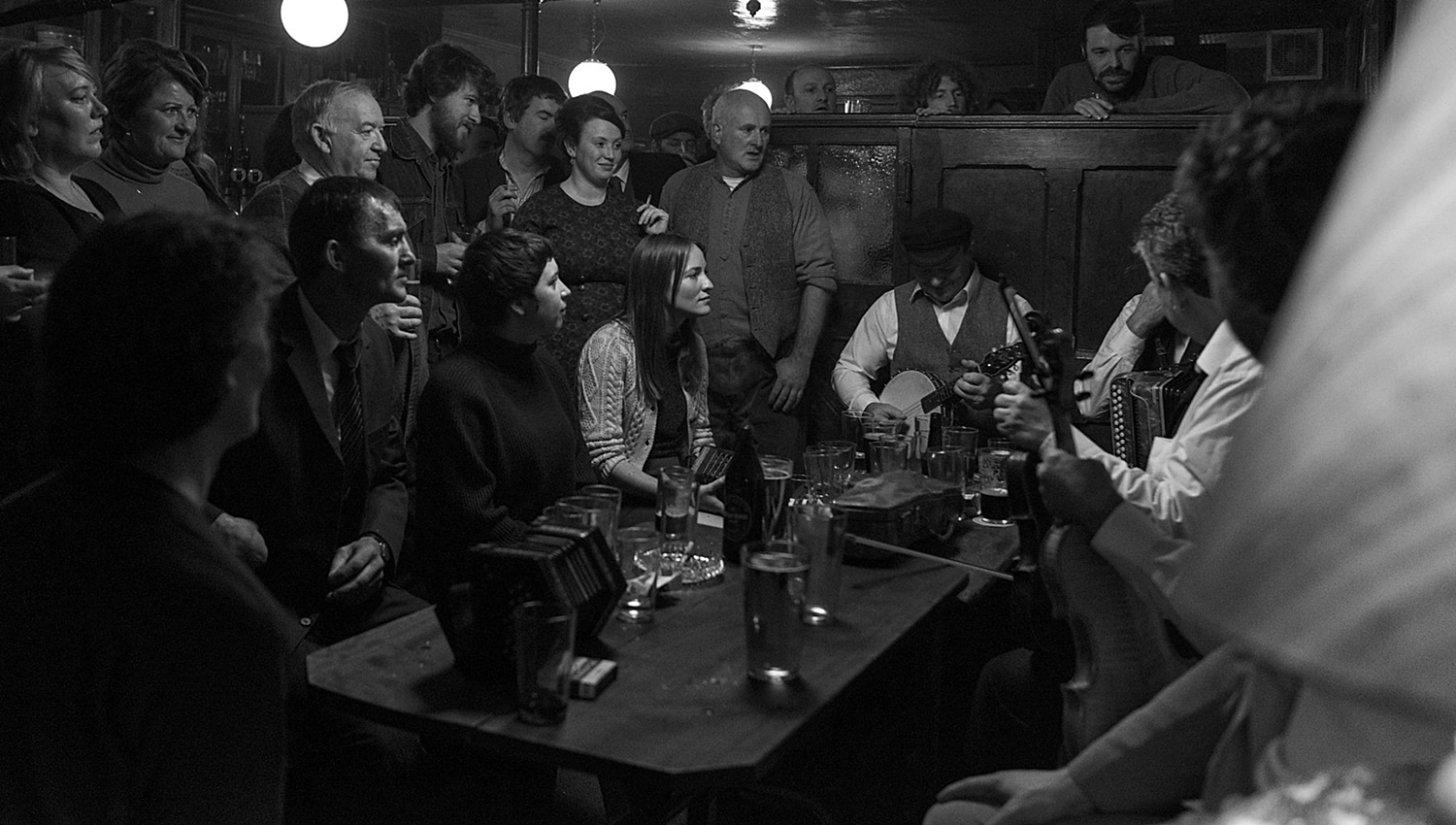
Song of Granite
Dustin Chase
Ireland’s submission to the 90th Academy Awards is by far the worst of the selections I have reviewed. Song of Granite is also one of the worst films I’ve ever seen. To be fair, Pat Collins black and white film is mixed media, combining documentary style interviews, recreations of characters and songs with archival footage. It’s the Academy’s fault for allowing a film of this nature to compete in the narrative category. It’s also a shame that Collins would choose to present a film, shot in the lush areas of Ireland, to be presented in such pale black and white format. Song of Granite runs only 97 minutes, but the long takes of characters doing mundane things in combination with a Gaelic song every five minutes, doesn’t leave the viewer with much to grasp.
We first meet Joe as a child in the 1920’s, wondering the rocky steep of his homeland in Western Ireland. He and his father, both blessed with song, are often compelled by the locals to perform or when one stranger from out of town arrives with a recorder, to capture their voices. Fast forward twenty years and Joe has moved to Glasgow, working a steady job, but with music still in his soul. This is where we start to get documentary footage of the time and place. We follow Joe as he gets older, traveling abroad and ending up in New York as he becomes a renowned musician, celebrated well into old age. He journey’s back to his homeland in the twilight of his life to meet with his younger self, still roaming the rocky shores of Ireland.
Song of Granite isn’t a movie, and that’s what’s so frustrating when you sit down to examine acting, characters, a narrative and you find, whatever the hell this is.
Why, Collins would imagine an audience wants to see a still shot of an actor dancing a jig for a full 2-3 minutes, doesn’t make sense. Again, he will still the frame, as we watch men place granite rocks onto a wall. Song of Granite isn’t a movie, and that’s what’s so frustrating when you sit down to examine acting, characters, a narrative and you find, whatever the hell this is. What’s even worse, the events unfolding on screen are so impenetrable that the viewer can’t even learn about legendary seannós singer Joe Heaney. I was shocked that this format would be chosen versus having a screenwriter deliver something that would better celebrate both the art of seannós and Heaney’s legacy.
While most audiences will walk out or turn this film off after the first few minutes, staying with Song of Granite is an increasingly frustrating experience that could put even those interested in the subject matter to sleep. The songs do not include subtitles, which means for those who don’t speak Gaelic, we just sit and wait for the music to end so the film can proceed. When the film isn’t presenting archival footage, interviews or songs (and that’s 75% of the film) the landscape shots and outdoor lighting are quite beautiful. However, occasional well photographed scenes can’t provide us with a reason to endure.
Final Thought
Has no business competing in the narrative foreign film competition and calling itself a feature film is quite a stretch.
